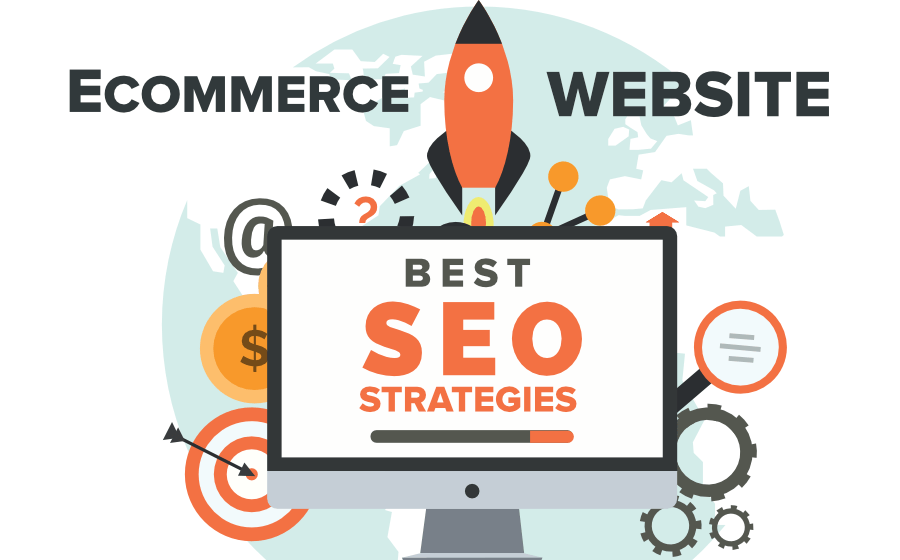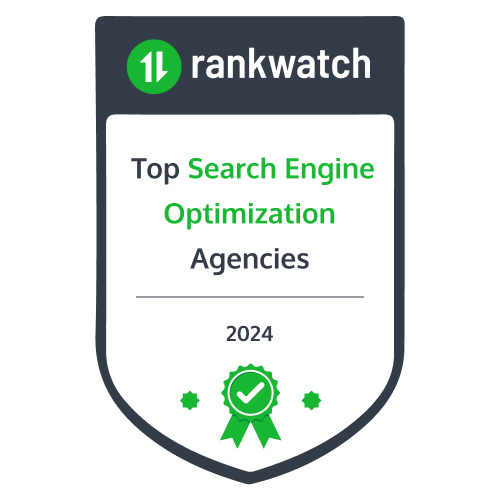Merchant’s Guide to Thriving Online: Mastering SEO Strategy
In today’s digital age, having a strong online presence is essential for any merchant looking to succeed in the competitive e-commerce landscape. Search Engine Optimization (SEO) is a fundamental aspect of this digital strategy, and mastering it can make a significant difference in your online business’s success. This guide is designed to help merchants of all sizes understand and implement effective SEO strategies to improve their visibility and drive more organic traffic to their online stores.

Search Engine Optimization (SEO) is of paramount importance for online merchants. It refers to the strategies and techniques used to improve a website’s visibility on search engine results pages (SERPs), such as Google. For online merchants, high visibility on search engines can directly translate into increased organic (non-paid) traffic to their e-commerce websites. Moreover, in today’s digital age, you can create courses with good tools to further educate merchants about SEO best practices. This is critical because more traffic often leads to more conversions and sales. In a highly competitive online marketplace, SEO can be a game-changer, empowering merchants with knowledge and strategies to reach their target audience and
IT and Web Development Company are finding SEO to be indispensable. Given the ever-evolving digital landscape, many businesses find it challenging to maintain visibility and relevance, especially those in niches with technical jargon and complex solutions. Being easily discoverable through search engines is not just an advantage but crucial for reaching their specialised audience. To optimise this visibility, these companies should not only consider employing advanced SEO techniques but also think outside the box. Beyond traditional SEO, you can also take the help of online accountability coaches. These coaches specialise in ensuring that digital strategies are executed consistently and effectively. By combining advanced SEO with expert guidance, companies can effectively compete in a saturated market, capturing high-intent users who are actively seeking their services.
In this competitive era, every additional resource, such as an accountability coach, can make a significant difference in achieving online success.

Benefits of a well-crafted SEO strategy
A well-crafted SEO strategy can offer a plethora of benefits to online merchants, including:
- Increased Visibility: SEO can boost a website’s ranking on search engine results, making it more visible to potential customers.
- Higher Organic Traffic: By attracting organic traffic, merchants can reduce their reliance on paid advertising and enjoy consistent, cost-effective traffic to their site.
- Better User Experience: SEO often involves optimising the user experience, leading to improved website navigation and performance.
- Improved Credibility: Websites that appear at the top of search results are often perceived as more trustworthy and credible by users.
- Increased Sales: Higher visibility, more traffic, and better user experience can lead to increased sales and revenue while using all-in-one CRM software streamlines sales and customer relationship management processes.
SEO Basics for Merchants

A. Explain what SEO is and why it matters
SEO, or Search Engine Optimization, is the practice of optimising your website to improve its visibility in search engine results. It matters because the majority of online experiences start with a search engine. When your website appears higher in search results, it’s more likely to attract visitors, increasing the potential for sales and brand recognition. SEO involves various on-page and off-page techniques to align your website with search engine algorithms, which determine the ranking of webpages.
B. Introduce keyword research and its relevance
Keyword research is a fundamental aspect of SEO. It involves identifying the specific words and phrases that potential customers are likely to use when searching for products or services you offer. By targeting the right keywords, merchants can optimize their content to match what users are searching for. Effective keyword research helps in creating relevant, high-quality content that resonates with your target audience and improves your website’s chances of ranking well in search results.
On-Page SEO Optimization
A. Discuss optimising website content and structure
On-page SEO optimization focuses on optimising individual webpages to improve their search engine rankings. This includes:
- Content: Creating high-quality, informative, and engaging content that satisfies user intent and incorporates relevant keywords.
- Meta Tags: Crafting compelling meta titles and descriptions to entice users to click on your search results.
- URL Structure: Ensuring your URL structure is clear, concise, and contains keywords.
- Header Tags: Properly using header tags (H1, H2, etc.) to organize content and signal its importance.
- Internal Links: Connecting related pages within your site for better navigation and user experience.
B. Highlight mobile optimization and user experience
Mobile optimization is a crucial aspect of on-page SEO. Search engines prioritise mobile-friendly websites because of the increasing use of smartphones for online browsing. To provide an optimal user experience, merchants should ensure their website is responsive and adapts seamlessly to various screen sizes. Ensuring your website incorporates CSAT software not only satisfies search engine requirements but also makes your site more user-friendly, reducing bounce rates and enhancing the overall customer experience
Off-Page SEO Strategies
A. Explore link building and its impact
Link building is a crucial off-page SEO strategy. It involves acquiring quality backlinks from other reputable websites to your own. These backlinks act as endorsements, signaling to search engines that your website is valuable and authoritative. Quality link building can significantly boost your website’s search engine rankings and overall online visibility.
B. Explain the role of social media in SEO
Social media plays a vital role in SEO. While social media signals themselves don’t directly impact search rankings, they can indirectly influence SEO in various ways. Sharing your content on social platforms can increase its visibility and drive more traffic to your website. Additionally, social engagement and sharing can attract backlinks and improve brand awareness, all of which contribute to your website’s SEO performance.
Content Marketing for SEO
A. Discuss creating valuable content
Creating valuable, high-quality content is at the core of content marketing for SEO. Content should address the needs and interests of your target audience, offering information, solutions, or entertainment. Valuable content not only engages users but also attracts links and encourages sharing, which positively impacts your website’s search engine rankings.
B. Explore various types of content and their SEO impact
Various types of content can benefit your SEO efforts:
- Blog Posts: Regular blog posts keep your website fresh and relevant, targeting specific keywords and attracting organic traffic.
- Infographics: Visual content like infographics can be highly shareable and improve user engagement.
- Videos: Video content is increasingly popular and can keep visitors on your site longer, reducing bounce rates.
- E-books and Guides: In-depth resources showcase your expertise and can be used as lead magnets for email marketing.
Technical SEO and Site Performance
A. Explain technical SEO and its importance
Technical SEO involves optimising the technical aspects of your website to improve its search engine visibility. It includes factors like website speed, mobile-friendliness, URL structure, and proper use of meta tags. A technically sound website ensures that search engines can easily crawl, index, and rank your content, leading to improved SEO performance.
B. Highlight site speed, security, and mobile-friendliness
Site speed, security, and mobile-friendliness are crucial technical aspects:
- Site Speed: A fast-loading website enhances user experience and can result in higher search rankings.
- Security: Ensuring a secure website through HTTPS not only protects user data but can also boost SEO as search engines favor secure websites.
- Mobile-Friendliness: As mobile traffic increases, mobile optimization is essential for SEO, as search engines prioritise mobile-friendly sites in mobile search results.
E-Commerce Specific SEO

A. Discuss product page and category optimization
Optimizing product pages and categories is essential for e-commerce SEO. This involves using relevant keywords in product titles, descriptions, and meta tags. Additionally, creating user-friendly URLs and organizing products into well-defined categories enhances the overall user experience and SEO performance. You can also create funnels with software such as ClickFunnels for better conversion and sales. In order to do so, you must have complete information on ClickFunnels.
B. Introduce customer reviews for SEO benefits
Customer reviews not only build trust but also offer SEO benefits. Search engines often consider user-generated content, including reviews, when ranking pages. Encouraging customers to leave reviews can boost your website’s credibility and improve its search engine rankings.
Local SEO for Physical Stores
A. Explain local SEO for merchants with physical locations
Local SEO is vital for businesses with physical stores. It involves optimising your online presence to attract local customers. Strategies include creating accurate and consistent business listings across various online directories and optimising content with location-based keywords.
B. Discuss Google My Business optimization
Google My Business is a critical platform for local SEO. Optimising your Google My Business profile by providing accurate business information, images, and customer reviews can help your physical store appear in local search results and on Google Maps.
Monitoring and Analytics

A. Introduce tracking tools and data analysis
To gauge the effectiveness of your SEO efforts, tracking tools and data analysis are essential. Tools like Google Analytics and Search Console provide valuable insights into website traffic, keyword performance, and user behavior. Regularly analyzing this data can help you make informed SEO decisions.
B. Explain staying updated on SEO trends
The SEO landscape is ever-evolving. Staying updated on the latest trends and algorithm changes is crucial for maintaining and improving your SEO performance. Following industry news, attending webinars, and engaging with the SEO community can help you adapt to changes and stay competitive.
Conclusion
Incorporating effective SEO strategies is crucial for the success of online merchants. This includes on-page and off-page optimization, content marketing, technical SEO, and e-commerce-specific SEO. Local SEO is essential for businesses with physical locations, and monitoring tools and staying updated on SEO trends are vital for long-term success.




